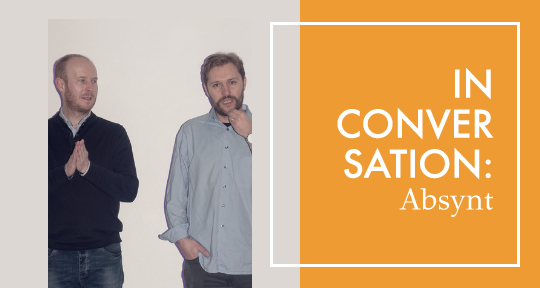In 2015, two friends, a Pole and a Slovak, took a gamble and ventured into the overcrowded book market in Slovakia. And as if starting a new publishing house wasn’t risky enough, they chose to focus on literary reportage, a genre that was not well-known in Slovakia at the time. Since then, Absynt has published eighty titles and in late 2017 launched a Czech branch. At this year’s London Book Fair, the founders of Absynt, Filip Ostrowski and Juraj Koudela, shared their remarkable success story with Asymptote’s editor-at-large for Slovakia, Julia Sherwood.
Julia Sherwood (JS): Reportage is increasingly being recognized as a bona fide literary genre and gaining popularity around the world. What is it about reportage that attracts you and that distinguishes it from ordinary journalism? Why do you think it resonates with readers?
Filip Ostrowski (FO): There is this general thirst for a deeper understanding of events and their context. We get coverage of the whole world from the media and the internet, but what is missing is a detached view, a kind of more universal commentary. For such a text to emerge, some time has to elapse. We feel that online coverage doesn’t respond to this need, but literary reportage can.




